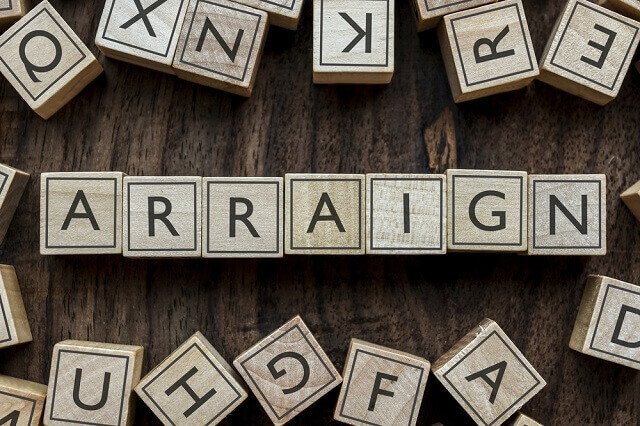How Does Arraignment Work?
 If you have been arrested, then you know that you will go in front of a judge soon. This is where you will hear the charges that you face, see if you can get out of custody, and become aware of anything else pertaining directly to your case. During this first court appearance, you will get a glimpse as to what you can expect in the future – this appearance is known as your arraignment.
If you have been arrested, then you know that you will go in front of a judge soon. This is where you will hear the charges that you face, see if you can get out of custody, and become aware of anything else pertaining directly to your case. During this first court appearance, you will get a glimpse as to what you can expect in the future – this appearance is known as your arraignment.
What is Arraignment?
Sometimes referred to as your “initial appearance,” the arraignment process is what ensures that law enforcement agencies cannot confine you indefinitely without some form of judicial oversight. You have the right to arraignment. While some do get out on bail or bond during arraignment, this is not a right. Instead, the judge will determine if your case and circumstances warrant release pre-trial. If not, then the judge can decide to hold you in custody before trial.
Arraignment must occur within a reasonable time after arrest; the Sixth Amendment does ensure your right to a speedy trial. If you do not experience an initial appearance in a timely manner, then your attorney could petition for a dismissal due to delay. It is not uncommon, however, for prosecutors to purposely run the clock as far as possible before doing their initial court appearance – that way, they can ensure that all charges are applied to your case.
What Happens at Arraignment?
Arraignment can vary depending on the county that you are in; but, in most cases, you will go through several steps, which include:
- Advisement of Your Rights – You may be advised of your rights during your initial appearance. Here, you will be told about your right to trial, right to counsel (if you do not have one), and your right against self-incrimination.
- Advisement of Charges – During your initial appearance, you will be told about all charges being brought against you. You have the right to know what charges you face. The judge will then read the criminal complaint, indictment, and other information regarding your charges – unless you choose to waive this reading.
- Entering Your Plea – After you are advised about what charges you face, you will then enter your plea for the court. You can choose to plead not guilty, guilty, or no contest. It is best that you speak with a criminal law attorney before entering any plea, as this plea will be used in court against you.
- Setting Conditions of Release – If you are allowed to released, the judge will then set conditions on that release. This can include release on recognizance (ROR), which means that you are released based on your own personal promise to appear in court. Typically, the court will release you via ROR for a minor offense. You may also be released on bond, bail, or another condition (such as supervised release). The release terms will depend on the crime that you are being charged with, and special circumstances of your case.
Do Not Attend Arraignment Without an Attorney – Contact a New Mexico Criminal Law Attorney Now
If you have been arrested, do not attend your arraignment hearing without speaking to an attorney. An attorney can assess your case and advise you not only on how to plea, but increase the chances that you are released instead of held without bond. Contact an expert attorney today from New Mexico Criminal Law Offices for your free case evaluation. You can contact an attorney online or call us directly at 505-375-4767.